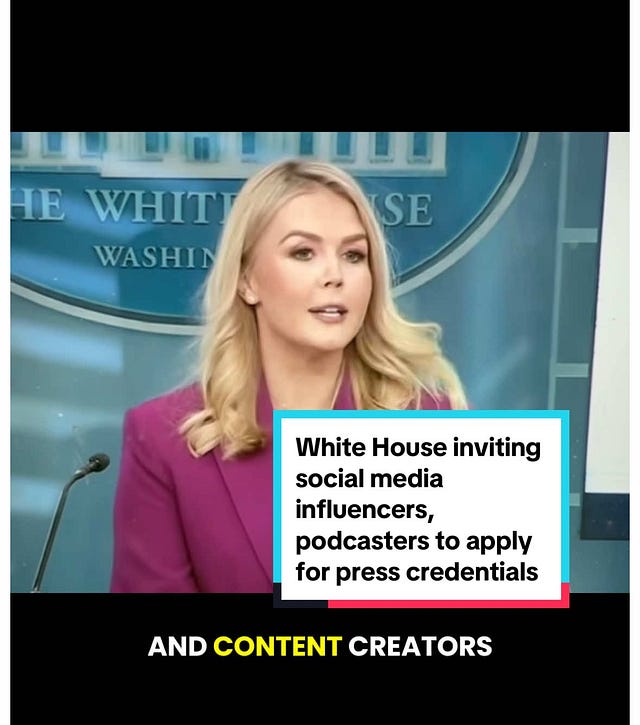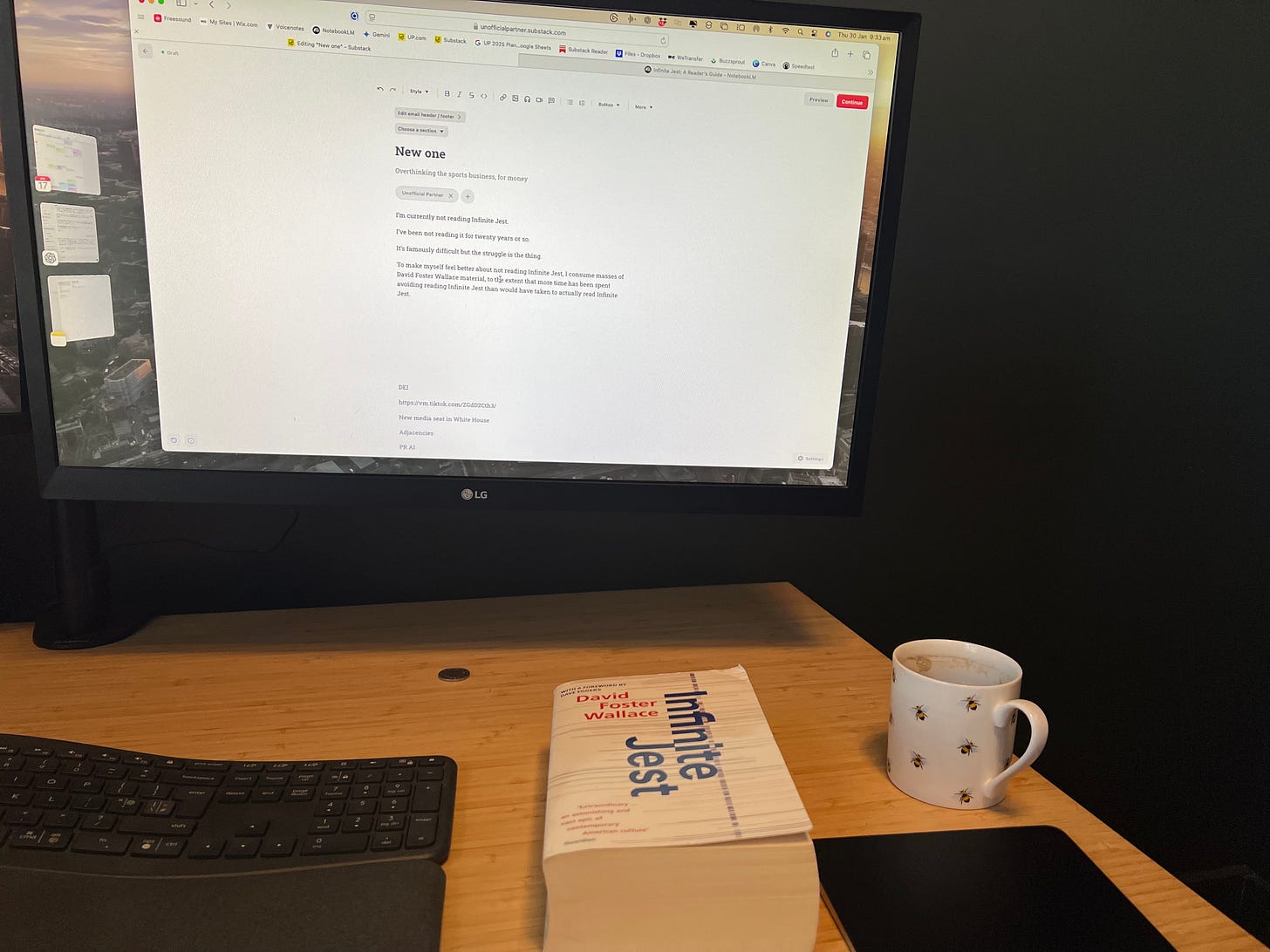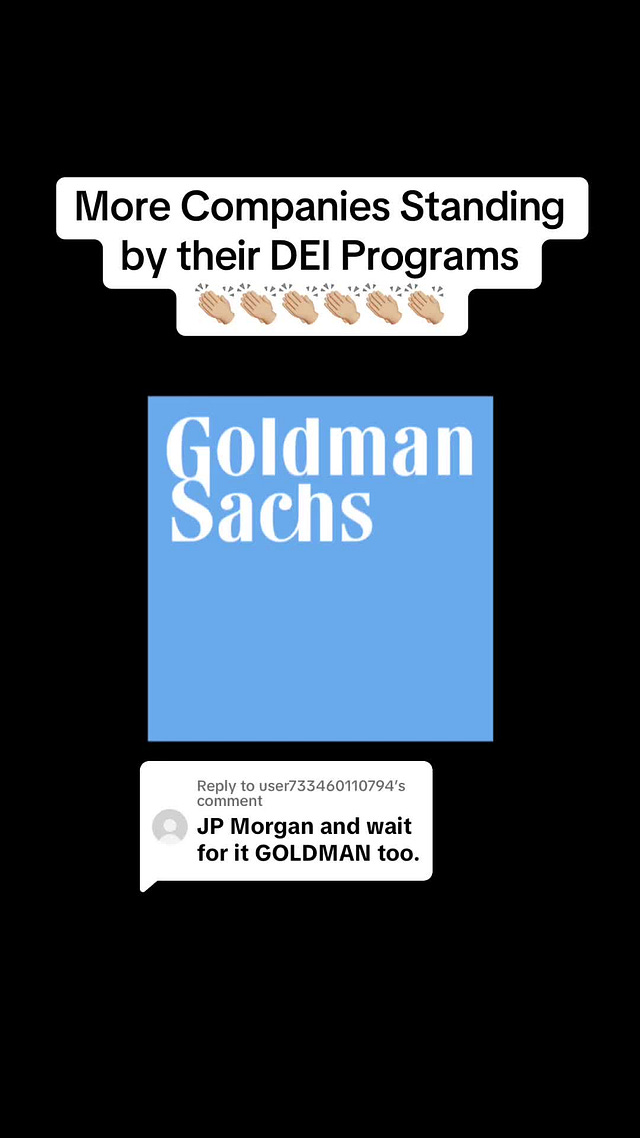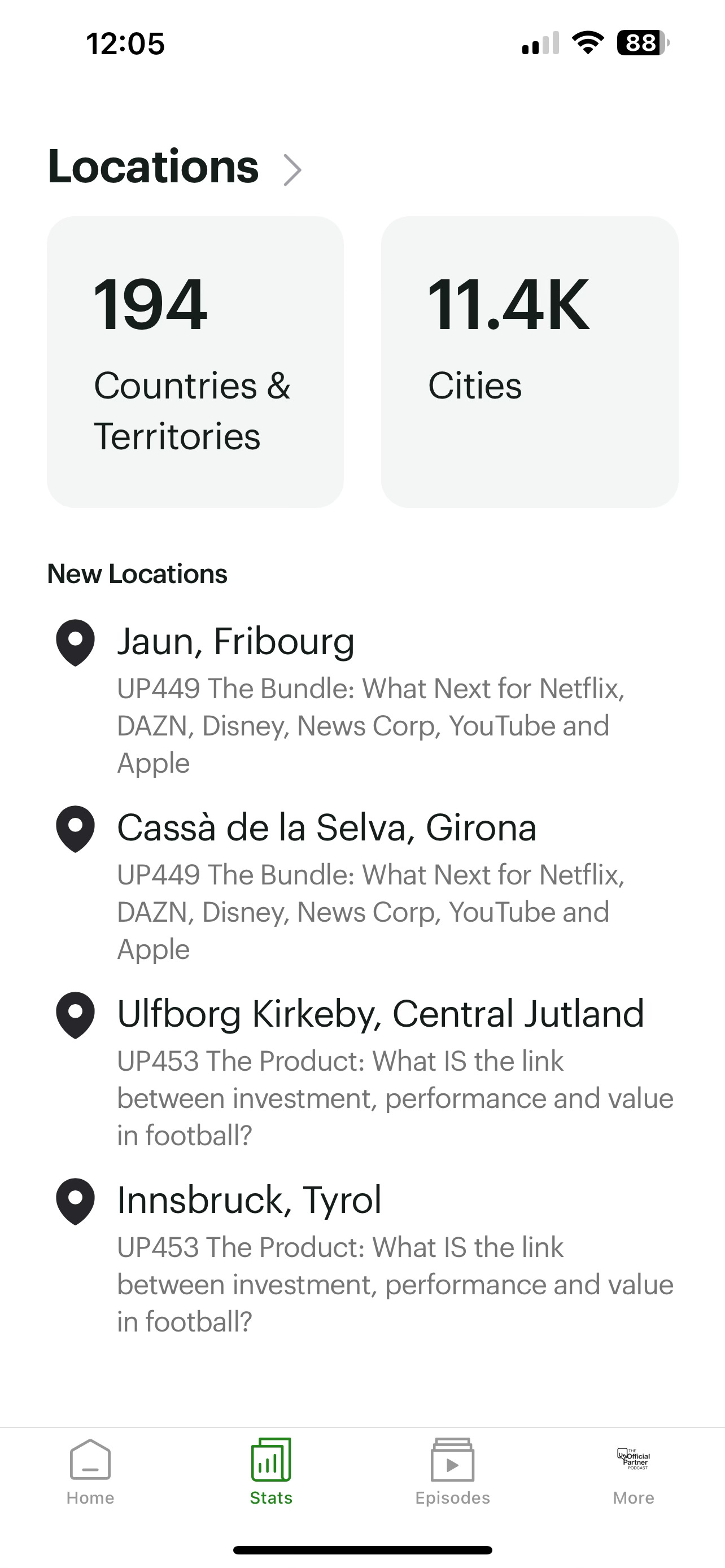I’m currently not reading Infinite Jest.
I’ve been not reading it for twenty years or so.
It’s famously difficult but the struggle is the thing etc.
To make myself feel better about not reading Infinite Jest, I consume masses of David Foster Wallace material, to the extent that more time has been spent avoiding reading Infinite Jest than would have taken to actually read Infinite Jest.
Rather than read it - laziness, fear - I’ve come to ask another, easier question, which is: what do I think lies within the book that is so important that I’ve been thinking about it for more than twenty years?
The book was published in 1996, but I first came across it around 2000.
The themes are entertainment, addiction, and the negative impacts of technology and consumerism on society. But it’s funny too.
The timing might be coincidence, but I assume I was open to the book’s main arguments. It was around this time I changed tack, from teaching to journalism, and got a job at Sport Business magazine, which then became SportBusiness magazine, without the gap between the two words, an idea for which a branding consultant was paid in the region of a hundred grand.
I’d ‘entered journalism’ with fantastically naive assumptions about what it would be like.
Very quickly I found the articles I was writing unintentionally hilarious: The corporate jargon, the self important tone, the impulse of the sports industry to commodify anything it touches.
Official Partnership, title sponsorships, category exclusivity; These are just a few of the everyday terms I find very funny. I’ve sometimes wondered why. I think it’s about the gap between the aspiration and reality. Failed hope is always funny.
Infinite Jest is set in a near future (so, about ten years ago now) in which time is subsidised, and years are named after corporate sponsors, an opportunity which is quickly exploited by the marketing industry. What starts as The Year of the Whopper evolves to The Year of the Trial-Size Dove Bar and finally The Year of Year of the Yushityu 2007 Mimetic-Resolution-Cartridge-View-Motherboard-Easy-to-Install-Upgrade for Infernatron/InterLace TP Systems for Home, Office, or Mobilee.
Now try to read a sport sponsorship press release and keep a straight face.
The central plot is the search for the missing master copy of a videotape known as “the Entertainment”: this is a film, made by the avant-garde film-maker James Incandenza, so ridiculously entertaining that anyone who sees it will be compelled to watch it over and over again, and having lost all interest in eating, drinking and basic sanitation will in due course expire. Incandenza himself died when he killed himself by putting his head in a microwave oven.
So, TikTok then.
Postman calls
From not reading Foster Wallace you quickly get to not reading Neil Postman.
Postman’s ‘Amusing Ourselves To Death’ pre-dates Infinite Jest by a decade.
And it contains one of the most prophetic paragraphs ever written.
It compares the two most influential 20th century fictional dystopias: George Orwell's 1984 and Aldous Huxley's Brave New World.
What Orwell feared were those who would ban books; what Huxley feared was that there would be no reason to ban a book for there would be no one who wanted to read one.
Orwell feared those who would deprive us of information; Huxley feared those who would give us so much that we would be reduced to passivity and egoism.
Orwell feared that the truth would be concealed from us; Huxley feared the truth would be drowned in a sea of irrelevance.
Orwell feared that we would become a captive culture; Huxley feared that we would become a trivial culture.
In 1984, people are controlled by inflicting pain. In Brave New World, they are controlled by inflicting pleasure.
In short, Orwell feared that what we hate will ruin us. Huxley feared that what we love will ruin us.
Fantastic isn’t it.
Sportbiz Adjacent
The White House press room now has a new media seat. This reminds me of arguing with the IOC about allowing a website accreditation to the Sydney Olympics.

 Tiktok failed to load.
Tiktok failed to load.Enable 3rd party cookies or use another browser
What’s PR now?
Goldman Sachs, JP Morgan, Nike show the way on DEI. Do your values mean anything if you don’t stand up for them against bullies? That’s a question heading for the sport sponsorship market as we speak.







